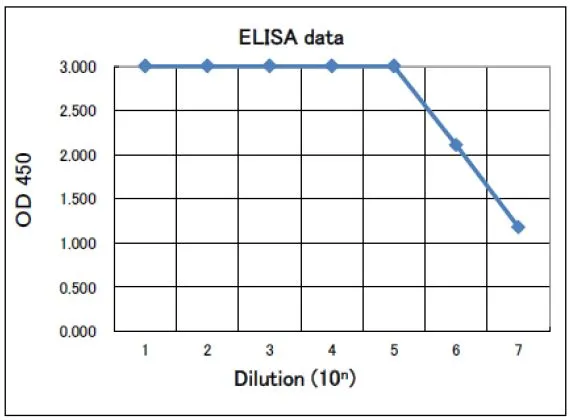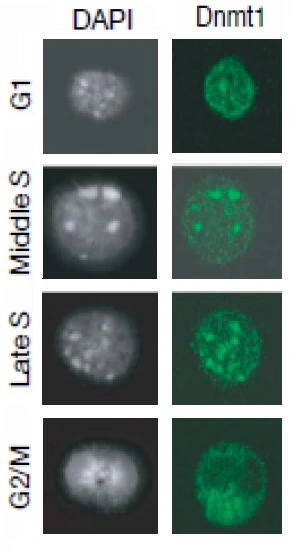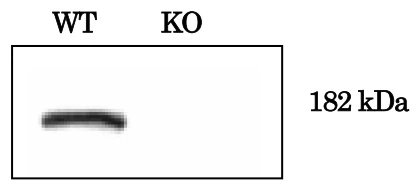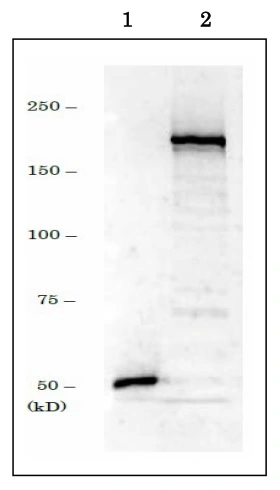
ELISA analysis of GST-Dnmt3 (1-248) fusion protein using GTX00734 DNMT1 antibody.
DNMT1 antibody
GTX00734
ApplicationsImmunoFluorescence, ImmunoPrecipitation, Western Blot, ChIP Chromatin ImmunoPrecipitation, ELISA, ImmunoCytoChemistry
Product group Antibodies
ReactivityHuman, Mouse
TargetDnmt1
Overview
- SupplierGeneTex
- Product NameDNMT1 antibody - KO/KD, Orthogonal Validated
- Delivery Days Customer9
- Application Supplier NoteWB: 0.2-1 microg /ml. *Optimal dilutions/concentrations should be determined by the researcher.Not tested in other applications.
- ApplicationsImmunoFluorescence, ImmunoPrecipitation, Western Blot, ChIP Chromatin ImmunoPrecipitation, ELISA, ImmunoCytoChemistry
- CertificationResearch Use Only
- ClonalityPolyclonal
- Concentration1 mg/ml
- ConjugateUnconjugated
- Gene ID13433
- Target nameDnmt1
- Target descriptionDNA methyltransferase (cytosine-5) 1
- Target synonymsCxxc9; DNA (cytosine-5)-methyltransferase 1; DNA methyltransferase MmuI; DNA MTase MmuI; Dnmt; Dnmt1o; m.MmuI; MCMT; Met1; Met-1; MommeD; MommeD2; MTa; MTase
- HostRabbit
- IsotypeIgG
- Protein IDP13864
- Protein NameDNA (cytosine-5)-methyltransferase 1
- Scientific DescriptionThis gene encodes a methyltransferase that preferentially methylates cytosines of CpG residues in hemimethylated DNA to generate fully methylated CpG base pairs during DNA replication. This enzyme plays roles in diverse cellular processes including cell cycle regulation, DNA repair, and telomere maintenance. The encoded protein is composed of an N-terminal domain with a nuclear localization sequence and replication fork-targeting domain, a DNA-binding CXXC domain, two bromo-adjacent homology domains, and a C-terminal catalytic domain. Mouse embryonic stem cells mutant for this gene are viable, but when introduced into the germ line, cause a recessive lethal phenotype with mutant embryos displaying stunted growth and developmental defects. Alternative splicing results in multiple transcript variants. [provided by RefSeq, Sep 2015]
- ReactivityHuman, Mouse
- Storage Instruction-20°C or -80°C,2°C to 8°C
- UNSPSC12352203




